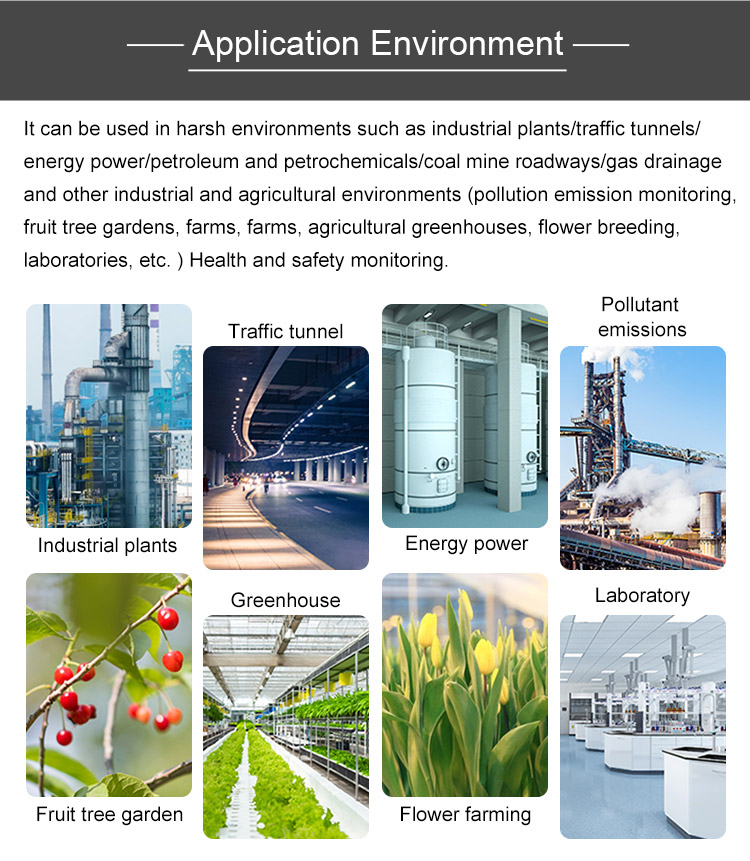Hydrogen gas detector play a crucial role in ensuring safety in various industries where hydrogen gas is present. This article explores the significance of hydrogen gas detectors, their functions, and their applications in industrial settings.
Function of Hydrogen Gas Detectors:

Hydrogen gas detector detect the presence of hydrogen in the environment. They serve the following functions:
Gas Detection: Hydrogen gas detectors accurately sense and measure the concentration of hydrogen gas in the air. They utilize advanced sensors and detection technologies to provide precise readings.
Alarm System: When hydrogen gas concentration exceeds the predetermined safety threshold, hydrogen gas detectors trigger an alarm system, alerting workers to take immediate action and evacuate the area.
Real-time Monitoring: These detectors continuously monitor the hydrogen gas levels, providing real-time data that enables prompt response and preventive measures.
Data Logging: Many hydrogen gas detectors have the capability to record and store data for analysis and reporting purposes. This helps in evaluating long-term trends and identifying potential hazards.
Applications of Hydrogen Gas Detector:
Hydrogen gas detector find applications across various industries where hydrogen gas is used or produced. Some notable applications include:

Chemical industry: In chemical manufacturing facilities, hydrogen gas detectors monitor hydrogen concentration to ensure worker safety. This helps prevent potential explosions or fires caused by hydrogen gas leakage.
Oil and Gas Industry: Hydrogen gas is commonly encountered in oil refineries and natural gas processing plants. Gas detectors are essential in these environments to detect any leaks or buildup of hydrogen gas, preventing accidents and ensuring worker safety.
Battery Manufacturing: The production of hydrogen fuel cells and lithium-ion batteries involves handling hydrogen gas. Hydrogen gas detectors play a critical role in monitoring and controlling the gas concentration to avoid hazardous conditions.
Laboratories: Hydrogen gas detectors are used in research laboratories where hydrogen gas is used in experiments. They provide an additional layer of safety by continuously monitoring the gas levels and triggering alarms if necessary.
Advantages of Hydrogen Gas Detectors:
Hydrogen gas detector offer several advantages that enhance industrial safety:

Early Warning System: The prompt detection and alarm system provided by hydrogen gas detectors allow for quick evacuation and implementation of safety protocols, mitigating potential risks.
Accuracy and Reliability: With advanced sensing technologies and calibration algorithms, hydrogen gas detectors provide accurate and reliable measurements, ensuring worker confidence in their safety equipment.
Easy integration: We integrate these detectors into the security system for seamless communication with other devices.
Maintenance and Calibration: Regular maintenance and calibration of hydrogen gas detectors ensure their optimal performance, guaranteeing accurate readings and reducing false alarms.
Conclusion:
The use of hydrogen gas detectors is imperative in industries where hydrogen gas is present. These detectors provide critical information about gas concentrations, enabling early warnings. It also contributes to the overall safety of workers and facilities. Their wide range of applications, accuracy, and reliability make them an indispensable tool in preventing accidents caused by hydrogen gas. By investing in hydrogen gas detectors, industries can ensure a safer working environment and minimize the risks associated with hydrogen gas handling.
